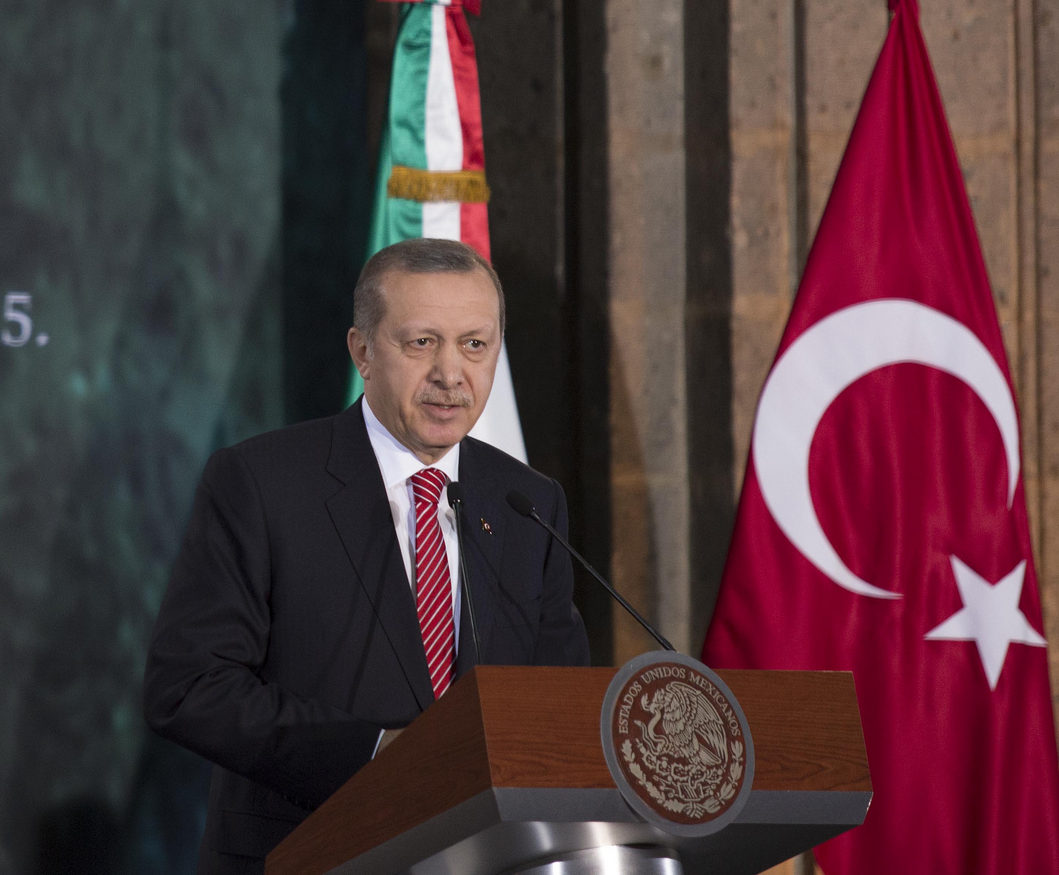In a rare condemnation by the United States against a North Atlantic Treaty Organization (NATO) ally, the Treasury Department has sanctioned two senior officials in the Turkish government as the two-year-long detention of American pastor Andrew Brunson continues. The relationship between U.S. President Donald Trump and Turkish President Recep Tayyip Erdoğan may now become highly strained, but the move follows an agenda of pushing for the release of American political prisoners around the world.
In a report from Politico, White House Press Secretary Sarah Huckabee Sanders said during a Wednesday press briefing that, “Turkey’s minister of justice and minister of interior, both of whom played leading roles in the arrest and detention of Pastor Brunson,” have been sanctioned. She added, “Any property held by the officials in the U.S. is blocked, and Americans are prohibited from engaging in transactions with them.”
Upon the President’s announcement, Treasury Secretary Steven Mnuchin said Brunson’s, “unjust detention and continued prosecution by Turkish officials is simply unacceptable…President Trump has made it abundantly clear that the United States expects Turkey to release him immediately.”
Brunson was taken in custody by the Turkish government in October 2016 following the public purges occurring in the aftermath of an overnight coup d’état attempt, wherein a faction of the Turkish Armed Forces attempted to take control of Ankara, Malatya, Istanbul, and other major cities and strategic points. The opposition forces, however, failed to do so after forces loyal to Erdoğan’s regime defeated them. Tens of thousands of Turkish military personnel, government officials, judges, teachers, protesters, and journalists were jailed, echoing the complex power struggle between Islamist elites and democratic forces in the country, all while Erdoğan graps authoritarian rule.
The pastor was charged with espionage and aiding and abetting a terrorist organization in connection with the attempt to overthrow Erdoğan’s government.
Many believe the sanctions are an “unusual” step towards shaking down a NATO ally. However, President Trump’s tweet days ago shows that he reprimanding Turkey with a force of economic sanctions until the pastor is returned. According to CBS, the President said:
“The United States will impose large sanctions on Turkey for their long time detainment of Pastor Andrew Brunson, a great Christian, family man and wonderful human being. He is suffering greatly. This innocent man of faith should be released immediately!”
The sanctions are legally justified, as explained by Danny Glaser, a former assistant secretary for terrorism and financial crimes in the Treasury Department under President Barack Obama. The department cited the Magnitsky Act in their action which allows the U.S. government to sanction individuals who it believes may be violating human rights.
“I certainly regard it as a human rights violation to unlawfully detain somebody, so I think it falls within the scope of the Global Magnitsky Act,” Glaser said. Nevertheless, he remarked, “It’s a very significant step.”
The U.S. and Turkey are waging somewhat of a prisoner war as Erdoğan has been enraged that the U.S. has not yet handed over Fethullah Gülen, a Pennsylvania-based Muslim cleric whom the Turkish leader alleges was behind a 2016 coup attempt – the incident in which Brunson was arrested and will stand trial for in a few months, and faces 35 years incarceration. Therefore, many claim that Turkey is holding on to the American pastor until the U.S. officially extradites Gülen.
The tiff over Turkey is many-faceted. Since it is a decades-old NATO ally, it hosts U.S. troops. Though, Erdoğan’s enhanced authoritative rule over the past few years has brought about clear human rights violations. Moreover, Erdoğan has been warming up to the Russians, a sign that creates anxiety within the NATO members for seemingly acting beyond the trust initiative of the Partnership for Peace (PfP) with the former Soviet Union.
“Erdoğan has left them basically little choice but to impose sanctions,” said Jonathan Schanzer, an analyst focused on Turkish geopolitical issues with the Foundation for Defense of Democracies. He reiterated that the move from the Trump Administration was, “aiming right at the heart of the Erdoğan government.”
The U.S. considers Turkey an important strategic asset in Eurasia and would not want to sour relations or even lose them, but the country is also a liability in a crumbling region. On the other hand, Turkey needs decent relations with U.S. as it is the leader of NATO. After mutual contention was shown by the leaders of both countries, it may now just be a war of words due to the extreme results a breakdown in diplomatic relations would bring forth.
Despite Turkey’s wandering sense of geopolitical alliance, the political disagreements between the U.S. and Turkey are unlikely to create a break in the defensive relationship. Though, many do expect Erdoğan to retaliate in some way.
Just hours before the sanctions were announced, President Erdogan accused the Trump Administration of showing an “evangelist, Zionist mentality,” according to a report from The Telegraph. It is unclear whether economic retaliation will be used on part of Turkey against the U.S., or otherwise. Reportedly, there was a deal in the making with Turkey to free Brunson after top U.S. ally Israel released a Turkish woman held on terror charges, but Turkish officials have denied the claims.






